Asking Amy Issue #8 Cary Grant, Forced Improvisation, and the Not So Awful Truth
Why we must watch old movies. And why going off-book is such a terrifying prospect
A snoutful of spring snow
Dear Faithful Readers: If you’ve made your way through seven issues of this weekly dispatch, you have likely already diagnosed me as a HSWP (Highly Sensitive to Weather Person). As a “Heswop,” I am like those weird drinking birds, always letting the barometric pressure send me for a dive.
So – given that my day completely rises and falls again based on what is happening outdoors, you will not be surprised that this week, when it snowed for two days, I was simply forced to take to my bed with a warm compress over my forehead and watch one of my favorite old movies, The Awful Truth.
Honestly, I was just looking for a little bubbly comfort. I wanted to mentally cavort in beautiful apartments with people wearing sparkly evening clothes. I also wanted to gut-check my fondness for the actress Irene Dunne. Was she in fact the most versatile actress never to win an Academy Award?
[And quick sidebar about Irene Dunne. Irene Dunne – in addition to nailing comedy and drama roles – was a passable opera singer. She also danced.]
Yes, Yes -- I digress!
Irene Dunne drew me in to The Awful Truth.
But Cary Grant kept me there.
Because: THIS IS THE MOVIE WHERE CARY GRANT BECAME CARY GRANT.
And – arguably -- this is the MOMENT when Cary Grant became Cary Grant.
My appreciation for this movie led me into some Deep Googling (DG) – and I’m so glad I did.
Which brings me to the topic Cary Grant forced me to think about: Improvisation.
YES, AND…
Cary Grant, as you may know, started life as Archie Leach. His childhood was almost gothic in its bleakness. In addition to surviving crushing Victorian poverty, Archie’s womanizing father had his son’s adoring and overwhelming mother committed to an “insane asylum” (so the father could live with his “other” family) – and then told the son first that his mother had abandoned them, and then later -- that she had died.
One day, 11-year-old Archie Leach came home from school and was told that his mother was gone. No explanation. Poof – she was disappeared, never to be spoken of again.
Archie Leach escaped this madness into the supportive circle of a circus “family” of performers. His hard work and mastery of impressive acrobatic skills launched him into a profession as a stage performer, with eventual passage to New York and – later -- Hollywood.
Cary Grant’s backstory of physical and psychological hardship helped to create an extremely controlled performer, well-known for his work ethic and professionalism.
Learn your lines. Rehearse. Show up on time. Hit your marks.
When you re-create yourself from such personal chaos, when you write your own script, it is vital that you stay within your story.
Enter director Leo McCarey, who was hired to bring the stage play The Awful Truth to screen.
Enter Irene Dunne, Cary Grant, and (an absolutely wonderful) Ralph Bellamy. Pros, all.
On the first day, McCarey threw away the script and wouldn’t supply the actors with pages.
He told them to improvise.
Henceforth, all the principal actors immediately tried to quit. (I picture them madly dictating urgent telegrams to their agents.) GET ME REWRITE! The mere thought of improvising especially distressed Grant, who became both hostile and physically ill.
On the third day of this uncontrolled craziness, Cary Grant offered Harry Cohn, head of the studio, $5000 to be let out of his contract, but Cohn wouldn’t budge.
Instead, these actors were trapped in a terrible state of “yes, and,” forced to improvise scenes, lines and reactions – based only on a loose outline. McCarey (a talented musician) had a piano brought onto the set, and sat there playing the piano and singing, as he and the actors spit-balled ideas.
The result is 90 minutes of spun platinum. Antic verbal and physical joy. All unleashed by a director who forced these nervous and unyielding actors to improvise. Film critic Molly Haskell describes the effect of the director’s technique in a wonderful essay:
“Ultimately, McCarey’s films elude both verbal description and visual analysis, because they are more like music; the originality and intensity come from the changing expressions on the characters’ faces, irony, self-mockery, love, despair crisscrossing like jazz notes.”
(The film also starred “Skippy” - the terrier who made “Asta” famous in the Thin Man movies…)
And Cary Grant’s golden moment, when he let his inner acrobat fly, unleashing his talent for physical comedy, as well as his distinctive way of walking, sitting, crossing his legs and arms, and holding his head. The man improvised his way into his persona (he lifted some of his distinctive mannerisms directly from Leo McCarey, which seems fitting).
That’s when Archibald Leach became Cary Grant.
Improvisation is hard for people like Grant, people like me, (and – perhaps, some of you), who have survived something, built something solid, and who can’t quite shake that dark belief of how very much we have to lose if we go off-script.
When I ask myself, “What’s the worst that can happen?” I can actually supply a worst-case scenario that might just pin me in place forever.
But watch Cary Grant take that pratfall, and understand that everything that followed started with his being forced to improvise.
Every creative person has to will herself into similar moments of bravery; moments where you have to improvise your way toward something new.
Cary Grant has already happened. Cary Grant is taken. But I am trying to remember that improvisations – large and small -- might actually prove to be the making of me.
[I can’t write this ode to Cary Grant, whom I love, and leave you hanging about the fate of his mother, whose name was Elsie. She languished in the Bristol Lunatic Asylum with no contact from her son and no knowledge of him for 20 years. Just before his own death, Archie’s father finally confessed to what he had done. And the boy – now the man – now fully Cary Grant -- found his mother, arranged her release, became her legal guardian, spent time with her, and provided for her care for the rest of her life. She died at the age of 95, in 1973.]
Click here to read Molly Haskell's wonderful essay about The Awful Truth
One Art
The art of losing isn’t hard to master;
so many things seem filled with the intent
to be lost that their loss is no disaster.
Lose something every day. Accept the fluster
of lost door keys, the hour badly spent.
The art of losing isn’t hard to master.
Then practice losing farther, losing faster:
places, and names, and where it was you meant
to travel. None of these will bring disaster.
I lost my mother’s watch. And look! my last, or
next-to-last, of three loved houses went.
The art of losing isn’t hard to master.
I lost two cities, lovely ones. And, vaster,
some realms I owned, two rivers, a continent.
I miss them, but it wasn’t a disaster.
—Even losing you (the joking voice, a gesture
I love) I shan’t have lied. It’s evident
the art of losing’s not too hard to master
though it may look like (Write it!) like disaster.
What I’m Watching:
Nomadland, which I watched on Hulu
Improvised settings and scenes, in a deeply moving film about individuals who are improvising the rest of their lives.
(Wonderful Frances McDormand and David Strathairn’s characters meet, connect, and improvise)
Departments:
JUNK FOOD: By Railey Jane Savage
Clever Boy
Railey writes:
“When I was young I wasn’t sickly, but I was high-strung, which led to days home from school to focus on not thinking too hard. In those days (early 90s) a day home from school meant a day home alone—like Elliot’s day off in E.T., I was left with “don’t answer the phone, don’t answer the door, I’ll be home around six,” the couch and a stack of videotapes—my sick movies.
(Elliot taught a generation of children how to give themselves “a temperature”)
“The lineup has changed somewhat over the years--I don’t watch The Brave Little Toaster quite as often as I once did—but the principle remains the same: familiar sounds and faces to act as grounding, control elements for when I feel unmoored. (Hence: Junk Food – stuff I consume to feel better.)
“For the past ten years Lawrence of Arabia has been one of my go-tos. I can recite nearly every line, conduct the philharmonic when the score swells, and find deep solace in knowing how the drama will unfold; you can’t be unnerved by the unknown if you know what’s going to happen.
“How strange, how ironic, how fitting, then, that one of my favorite moments in the film, was improvised. Lawrence has just been given a set of white robes in the desert and skitters behind some rocks to revel in his garb in private. He pulls the dagger from the sheath at his waist and dramatically holds it aloft only to use it as a mirror, checking himself with a smile in the reflective surface of the blade.
“Director David Lean had asked O’Toole to improvise a moment of self-satisfaction for Lawrence and, when filming the moment, narrowed his eyes on the actor and chuckled, “Clever boy.”
“Improvisation has felt unstable, unsafe to me for about as long as I can remember; I’m no adventure-seeker. But even a shallow dive into the makeup of my security blankets (movies, food, my cats) reveals that a drop of chaos can rewrite the recipe with nutritive, iconic results.”
[Railey Jane Savage lives, works, and watches in her home in Ludlowville, NY. You must follow her on Insta! @cartoonsandcats]
Laura Likes:
[Where our correspondent Laura Lorson tells us about things she likes!]
Laura writes:
“It's almost impossible not to have some fondness for classic Hollywood movies. I've heard horror stories from film professors and critics about how young people supposedly aren't interested in black-and-white films; I've personally been aghast at film majors who told me they've never heard of Billy Wilder or George Cukor or Frank Capra, and there was also this one time an intern asked me who Cary Grant was (?!?), but it turns out that if you don't just wring your hands about Kids These Days and actually ask what said kid is interested in, you can have the joy of introducing someone to great pieces of American art. People always seem to be shocked that people in the 20s, 30s, 40s and so on had the same sorts of worries as we do now. I suppose that's one more reason to love Hollywood movies. It's just one more way to connect to the past on a personal level.
If you yourself want to know more about golden age Hollywood, I strongly recommend The Golden Age of Cinema: Hollywood, 1929-1945 by Richard B. Jewell (Wiley-Blackwell, 2007: ISBN: 978-1-405-16372-9).
I won't lie to you -- this is a college-level textbook. But it's written with deep expertise and good humor. It's clear that Professor Jewell (he's the Hugh M. Hefner Professor of American Film at the University of Southern California) loves these movies, and wants you to love them, too.
It's a terrific overview that brings together economics, cultural anthropology, sociology, history and film studies. This book will introduce you to classic American films, remind of you some you may have forgotten, and contextualizes them in a way that makes re-watching (or first-time watching, no judgment here) an even more profound pleasure. (Don't let the "it's
a college text" part of this put you off -- it doesn't read like one.)
If you want to understand how these pictures were made, why these pictures were made, and the way they changed our national psyche, then this is worth your time. I found my copy at a library sale -- if you poke around a bit, you can probably find one used. Warning: you'll probably immediately want to watch a lot of movies for a while after this. Streaming services aren't particularly helpful except for major cinematic landmarks -- they are constantly culling films from their archives to make room for more modern programming -- so it may be tricky, but the thrill of the hunt is real.
It's also a good opportunity to re-visit your local video shop or library, or to subscribe to an area film appreciation society or film archive.* Classic film is a great hobby, actually...fun, makes you think, and makes you happy. Who knows, you might even make a new friend or two.
I hope you enjoy the book and enjoy getting to understand how these movies shaped American culture, both for good and for ill. They really did make us who we are.
*tip: Facets Multimedia in Chicago is a phenomenal film resource -- and if you're not physically in Chicago, you can subscribe online for streaming access to hard-to-find films for less than $10 a month if you become an annual subscriber. I think I joined Facets maybe the first week I lived in Chicago. Registered to vote, got a library card, became a member of the Art Institute, joined Facets, joined the Seminary Co-op Bookstore, got a hot dog with sport peppers, ate some very thick pizza. I believe that is what you call a "Chicago Bingo."
Targeted Upsell: By Emily Mason
(Where our consumer correspondent reports on what the Internet wants her to buy)
Emily writes:
“What’s New?
Allow me to introduce you to Almond Cow, the plant-based milk maker!
Simmer down, people: This is apparently not a kettle.
This device allows its customers to make their own alternative milks (almond, cashew, oat, etc.). All you have to do is dump the ingredients in, add water, and push the button with the cow on top! Cuuute!
You can also purchase raw ingredients from Almond Cow, and super-cute glass bottles to put all your milk in! The bottles are so popular they’re currently sold out!
The Point? Yay! Save money in the long-run! Make less waste! I mean, why buy the cow when you can get the milk for free, amirite?
...Allegedly!
In my research I found it’s actually cheaper to buy almond milk than make it.
Granted, making it yourself means that you know exactly what’s in it. But… you don’t actually need Almond Cow to make your own nut milk. Turns out, all you really need to make it yourself is nuts and water.
...Maybe a bowl.
It takes longer, sure, but I wonder what this specialty device that only makes one thing is costing the planet?
My bet is the answer is “who cares? We have glass bottles!”
Why am I seeing this?
Not a clue; I typically stick to the milk from cows. My people were dairy farmers, I gotta represent!
Did they sell me?
Ha...noooo.
I know a racket when I see one, Almond Cow is the Neiman Marcus (aka Needless Markup) of the alternative milk world.
I’ll be honest: the only thing that really interested me about this was the cow button. But I looked, and — like so many things — up close, it’s not that cute."
[Emily Mason lives in Chicago; you can find her on Twitter @themistakemaven]
If you’ve made it all the way to the end of this week’s newsletter — and you’ve enjoyed it — please shoot me a “heart” below.
I read ALL comments and suggestions. I hope you feel comfortable adding them below.
Soon, I’ll be offering a “paid” version, but remember — this “premium” content will always be free!





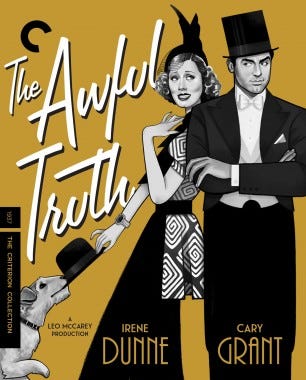
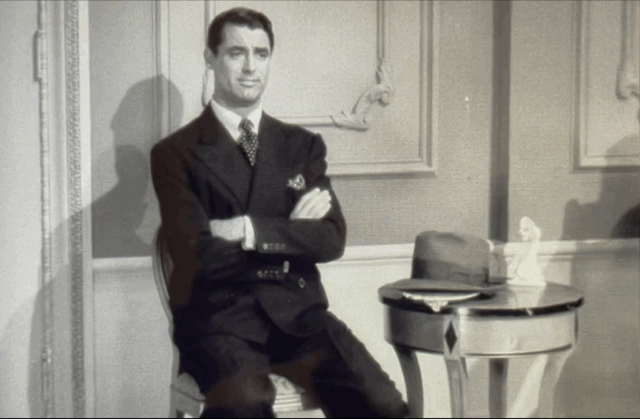

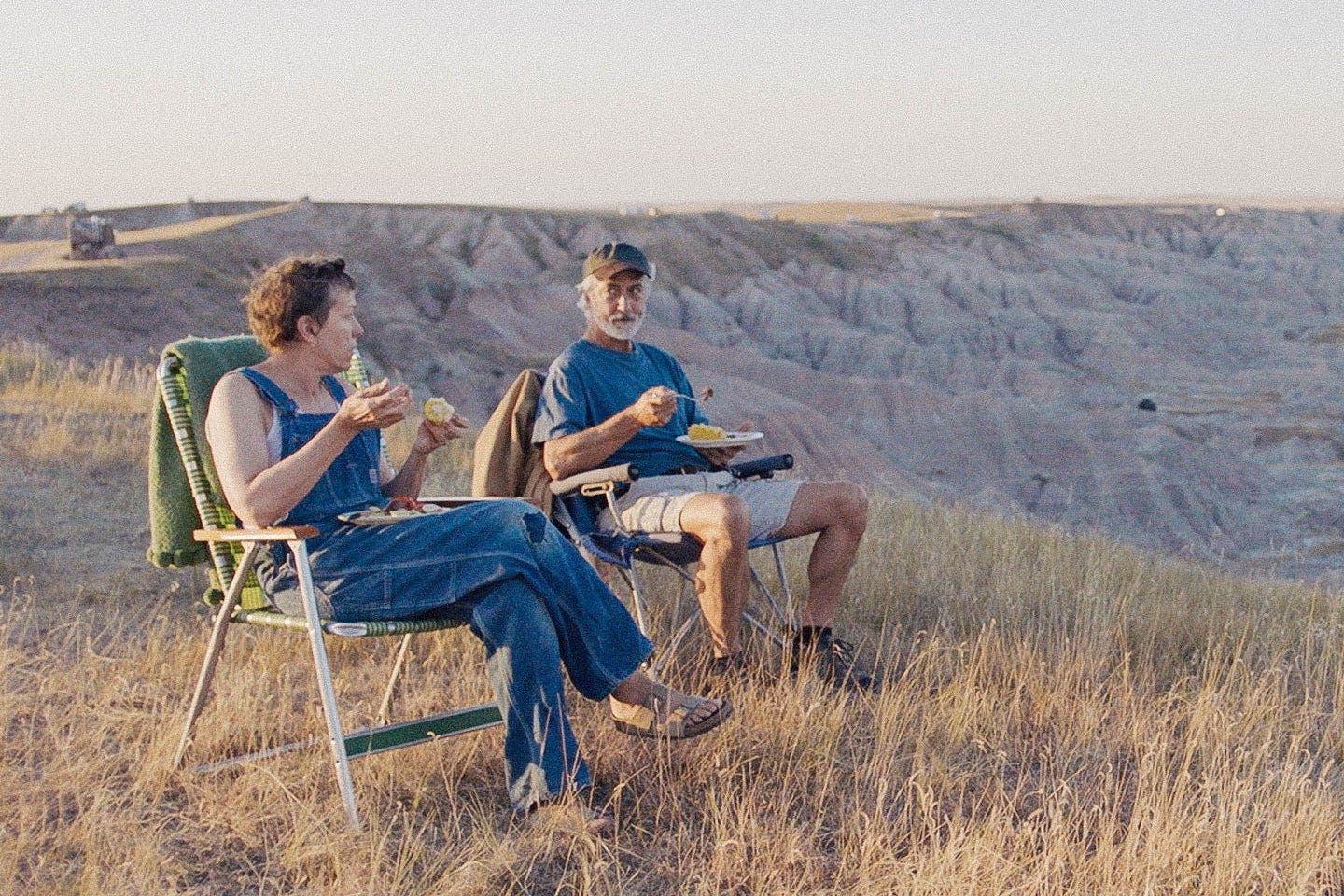
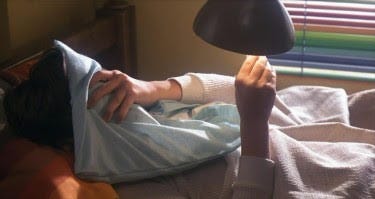
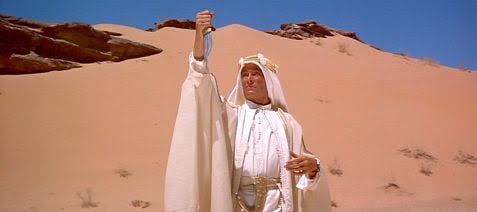
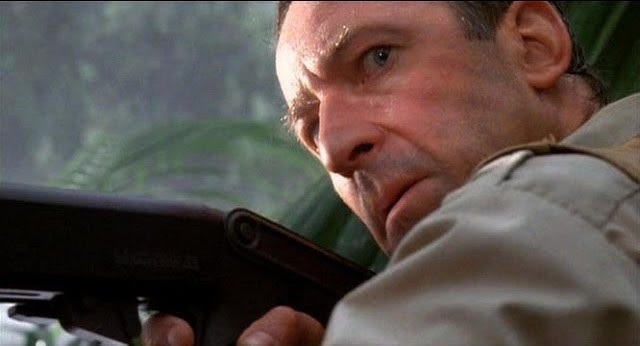
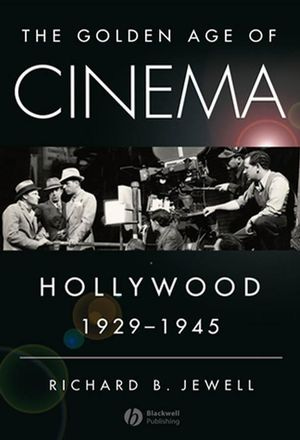



My dad had a pair of male orange tabby cats. He was so funny! Dad named them Squeak and Squawk.
What a great entry! I have not but mosdef will watch the film. I always love Cary Grant and find his mother’s story heartbreaking. Somehow similar to John Lennon’s isn’t it?